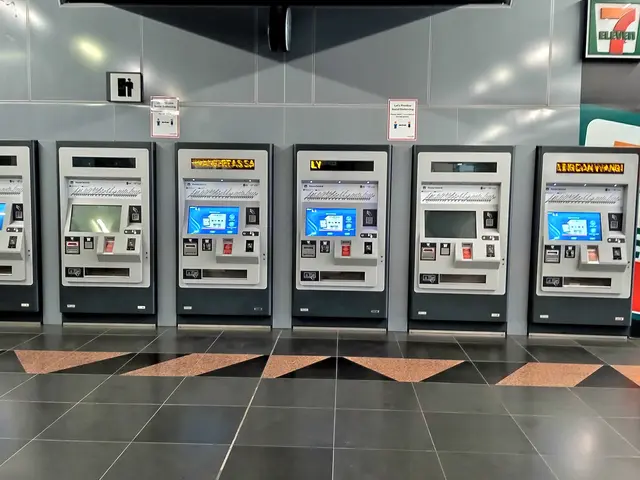UK government's proposed tax increases on gambling causes losses of approximately £4 billion in gambling share values
The UK gambling sector is facing a potential tax raid, as indicated by the significant losses of value in British gambling companies. The latest updates suggest that the government is moving towards increasing taxes on the sector, which could heavily impact major operators such as Flutter, Entain, and William Hill.
On a Friday, shares in Flutter, the operator of Paddy Power in the UK, plummeted, losing over £4bn [$5bn] in value due to fears of a tax raid. Similarly, Entain, the owner of Ladbrokes and Coral, saw a loss of about £37m in value, while shares in London-listed Evoke dropped by £23m following the report.
The Institute for Public Policy Research (IPPR) has proposed more than doubling the remote gaming duty from 21% to 50% and increasing machine games duty from 20% to 50% of operator profit. It also suggested raising the general betting duty from 15% to 25%, aligning other sports betting with horse racing. These proposals, if implemented, could generate an additional $2.4 billion for the government in 2026-27 and are partly aimed at addressing child poverty.
The government's move towards a unified higher tax structure for remote gambling has sparked significant backlash, especially in horse racing. Currently, horse racing is taxed at 15%, but the government proposes to raise this to 21%, equivalent to the rate for online gaming operators. In response, the British Horseracing Authority has announced its first-ever strike for September 10 to protest the proposed betting tax rise, warning about the threat to the sport’s future and heritage.
Industry leaders warn that such tax hikes could lead punters either to bear the higher costs or migrate to black-market operators to avoid the higher taxes. The gambling sector has already seen tax rate increases this year, from 30.5% to 34.2%, and it is set to rise further to 37.8% in January 2026.
Financial impacts on operators are evident: for instance, ATG (a notable player in the sector) reported a 5% dip in net gaming revenue in H1 2025, partially due to a recent increase in gaming tax rates from 18% to 22%. Major multi-brand operators like Flutter, Entain, and William Hill are expected to face similar pressures, as increased taxation would reduce their margins and potentially affect betting volumes.
The person suggested to be responsible for raising these taxes is Rachel Reeves, who is battling to plug an economic black hole worth up to £50bn. The report did not specify a tax rate increase or changes, nor did it indicate a specific date for the announcement of the potential tax raid. However, it is expected to be announced in the next Budget.
In summary, the UK gambling sector faces substantial tax hikes proposed and partly implemented for 2025-26, which will likely squeeze profits for major operators and may provoke sector-wide protests and consumer shifts toward unregulated markets.
Read also:
- Digestive issues and heart discomfort: Root causes and associated health conditions
- Saudi Arabia's Prince Faisal indicates commitment to influencing the future direction of eSports.
- Bile duct cancer prognosis: examination of survival rates, remission, and additional aspects
- Advanced AI and Genetic Enhancements in China's Military Elite: 7 Pivotal Developments







